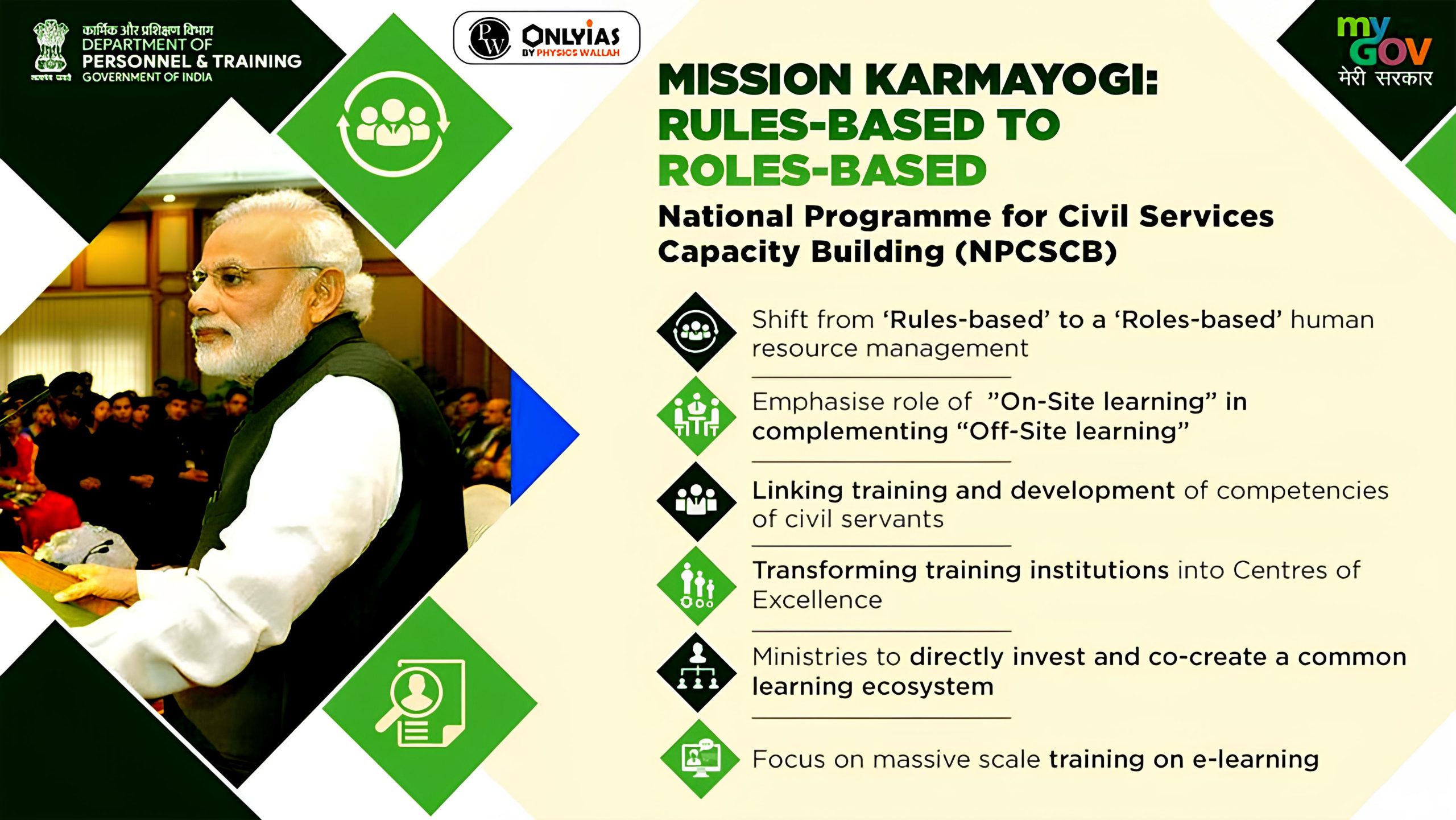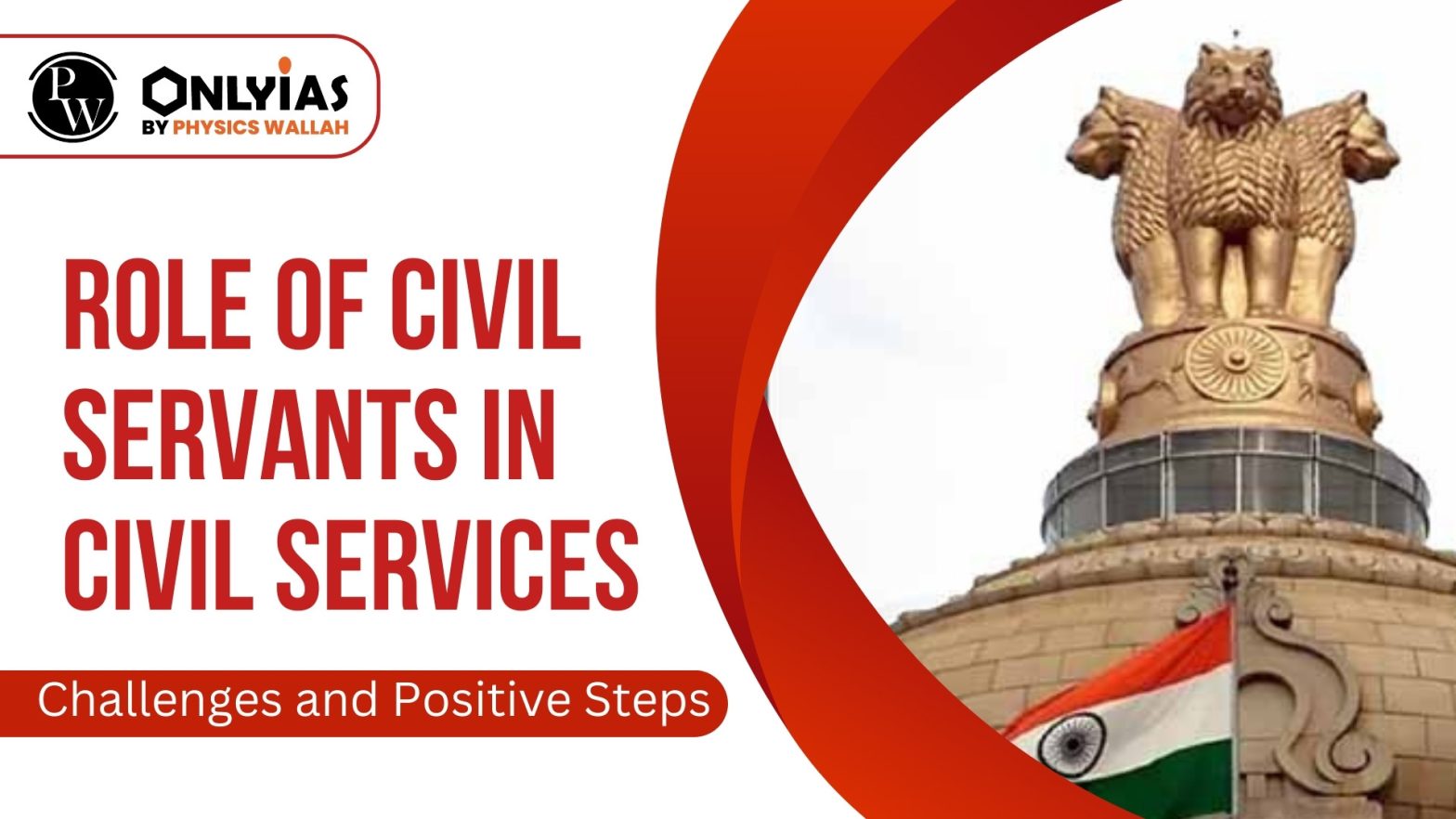Context:
- Despite rampant criticism, civil servants have been the harbingers of change in India. They served as the ‘steel frame’ of colonial rule in India and even in Post independence, the broad structure of the colonial bureaucracy was retained.
What are the roles of civil servants in Civil Services?
- Main Pillars of the Government: They help the government to execute its programs through coordination and service delivery.
- They provide effective coordination between the various institutions of governance, and also between different departments, bodies, etc.
- They offer service delivery and leadership at different levels of administration.
- They are responsible for implementing laws and executing policies of the government.
- Experts Opinion: Help in Policy formulation and are also responsible for delegated legislation.
- Socio-Economic Development: Being trustees of public resources, civil servants act as leaders, and decision-makers in almost all spheres of governance.
- Continuity of Good Governance: By providing continuity in administration during political transition. Promote uniform administration and standards of governance in India.
- Crisis Handler: They are the first responders in the event of disasters – whether natural (earthquakes, cyclones) or man-made (law and order).
- Binders: The civil service is present all over India and it thus has a strong binding character.
- Provider of Welfare Services: The services offer a variety of welfare schemes such as providing social security, the welfare of weaker and vulnerable sections of society, old-age pensions, poverty alleviation, etc.
- Administrative Adjudication: They perform quasi-judicial services by settling disputes between the State and the citizens, in the form of tribunals, etc.
Learn more about the Role Of Civil Services In A Democracy in detail.
Civil Servants in Civil Services: Present Challenges
- Administer States, but responsible to the Centre affecting the spirit of cooperative federalism and decentralization.
- Lack of Specialization and Training to meet modern day challenges and poor capacity building.
- Constitutional and statutory safeguards like Article 311 slows down developmental agenda.
- Monopoly and License-raj, though officially dismantled in 1991, continues in other forms, which leads to corruption, poor accountability, and inefficient resource allocation and utilization.
- Political interference and administrative compliance
- An ineffective incentive system that does not reward the meritorious and upright civil servants.
- Rigid and outmoded rules and procedures that do not allow them to perform efficiently.
- Lack of accountability and transparency procedure.
- Patrimonialism i.e., a form of governance in which all power flows directly from the leader.
- Resistance to change from the civil servants themselves.
Also read: CVC Report On Corruption
Civil Servants; Positive Steps taken by the India Government
- Operationalizing the existing Service Conduct Rules to sack officers for incompetence.
- Lateral Entry of ten specialists in key sectors.
- Enhance accountability through the use of technology, periodic reviews, and overall performance evaluation.
- End monopoly of few services like IAS, and promote equitable sharing of central posting with other central services.

Conclusion
The role of civil servants is crucial as they are responsible for managing the resources given to them by the government, making use of them efficiently and effectively, and ensuring that it reaches people at the grassroots level. To obtain desired results, there is a need to transform status-quoist and rule-obsessed civil servants working in silos into “experts”.
| Attempt the PY Prelims Question
In India, separation of judiciary from the executive is enjoined by; (2020)
(a) the Preamble of the Constitution
(b) a Directive Principle of State Policy
(c) the Seventh Schedule
(d) the conventional practice
Ans: (b) |
![]() 13 Oct 2023
13 Oct 2023

